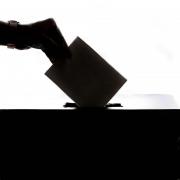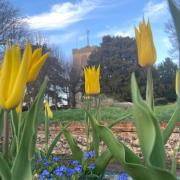
Starbucks. Costa. Caffè Nero. All side by side. It is almost comedic. Why are there such a myriad of coffee shops? Why do Londoners require so much coffee? Literally, everywhere you go in London, you see at least one person sipping from a coffee cup. In 2016, 70 million coffee cups were purchased with over more than 16,501 coffee shops existing within London alone. Londoners are famous for their tea so why is there an abrupt obsession with lattes? Coffee is one of the most addictive drinks around. Constant consumption of coffee could result in withdrawal symptoms such as fatigue, nausea and headaches, if you try to quit. Paying around £2.50 for a quick coffee at one of the many coffee chains seems favourable compared to the other option of having to bear a headache or sick feeling whilst you are at work or school. "I find it easier to just pop in and grab a coffee that will keep me energised throughout the day rather than having to wake up early to prepare tea and pour it in a flask and all," Jeyatharini Sivakumar explained.
Although the coffee market has grown, the amount of coffee consumed per capita has not. According to studies, Britons consume just 2.8kg of coffee per person compared to the 7kg consumed by Germans. Coffee consumption is now lower than it was in 2006. Londoners are altering the way in which coffee is being consumed. Instead of brewing instant coffee at home, they now visit coffee chains which save the effort and can seem more efficient. Coffee shops are even replacing pubs as they are increasingly becoming the place for social gatherings. The number of gatherings could also be augmented with the introduction of online shopping where instead of having to perambulate through various malls and shops, customers can save their weekends with online purchases providing more time for them to gather at coffee shops.
Yet, why who the British who are traditionally known for their teas choosing a cup of coffee instead. Well, rewind a bit in history. No - not to the Jurassic period but about 1000 years ago, when coffee was first discovered. 400 years later, it was utilised in medicine. Did you know that coffee as well as being medicine for heart disease can also be poison? In 1453, the first coffee shop opens called 'Kiva Han' located in what is currently known as Istanbul and the commercialisation of coffee commences. In 1600, Pope Clement VIII baptises coffee and is made an acceptable beverage for Christians. Fast forward to 1773 - the Americans switch from drinking English tea to coffee. In the 1920s, prohibition in which the US only serves to result in coffee consumptions or an augmentation in coffee sales. Finally, in 1950, companies such as Nestle use TV to advertise coffee products. The rise in the popularity of coffee was certainly not recent and is it thanks to its alternative uses and historical points where people began to favour coffee over other beverages is why it has risen.
More simply, the second reason for this takes on a more scientific approach. The majority will be aware of biology lessons that caffeine is extremely addictive and with more. As well as that, compared to tea which contains just 11mg of caffeine, coffee has 40mg. With more individuals becoming more and more dependent on it, no wonder coffee sales are increasing. Studies show that as well as the aroma of coffee being inviting, it also calms us down in addition to making us feel less stressed out.
Caffeine however as all drugs do, has side effects. Quitting coffee has its benefits. Firstly, it breaks the addiction. Caffeine increases your blood pressure and so by decreasing your coffee consumption, you are also reducing your chance of a stroke. Moreover, your mood also increases and you get less frequent headaches, Therefore, choosing to drink a coffee to get rid of your headache caused by coffee is not such a good idea. Is there anybody else out there who finds it hard to sleep? If you drink coffee, stop drinking coffee and you should find that you will be able to sleep easier.
Nevertheless, with the world increasingly consuming coffee, the coffee plants are becoming extinct. Dr Aoran Davis says "Wild Arabica in Ethiopia can become extinct" due to the increase in coffee consumption. Our consumption of coffee is not sustainable and we are drinking coffee faster than it is being made - the same with fossil fuels. What is worse? Coffee great nemesis a fungus called coffee leaf resulted in coffee plantations being wiped out entirely in the 1800s. Next time you drink that coffee, think about how at this rate of global consumption, by the end of the century, there may be no more coffee.



























